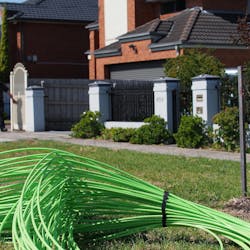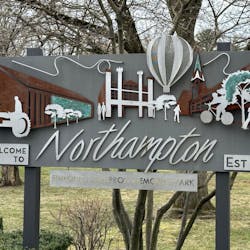"While the nation continues to make progress in broadband deployment, advanced telecommunications capability is not being deployed in a reasonable and timely fashion to all Americans," the draft says.
The draft report says 34 million Americans, about 10% of the population, lack fixed-line Internet access of 25 Mbps downstream and 3 Mbps upstream, mostly in rural areas. Three years ago, the number was 20%. Last January, the FCC increased its definition of "broadband" from 4 Mbps to 25 Mbps, but only requires that recipients of Connect America Fund money, which is intended to expand rural broadband, provide 10 Mbps service (4 Mbps in some areas).
Section 706 of the Telecommunications Act of 1996 requires the FCC to take immediate action to speed deployment if it finds that broadband is not being deployed to all Americans in a "reasonable and timely fashion." The draft report does not specify what that action might be; it simply lists existing programs.
The draft report is somewhat at odds with the FCC's fifth "Measuring Broadband America" report, issued in late December. Although that report noted poor performance from DSL-based technologies, it also said "... broadband speed offerings to the average consumer continue to increase at a rapid pace, and broadband service providers generally are delivering actual speeds that meet or exceed advertised speeds."
Industry reaction to the draft progress report thus far has been negative.
In a statement, USTelecom President Walter McCormick wrote, in part: "It would seem that the FCC's report should carry the headline 'our policies have failed' since it concludes that six years after adoption of the national broadband plan, the commission's actions haven't produced even so much as a 'reasonable' level of broadband deployment."
The NCTA's official statement says, in part: "Despite the significant, year-over-year advances in broadband capabilities underscored in the Commission's own data, the conclusions of the FCC's 706 Report continue an alarming trend of ignoring objectivity and facts in order to serve political ends and maximize agency power. Once again, the FCC arbitrarily defines 'broadband' as requiring a 25 Mbps connection (notwithstanding its lower 10 Mbps standard used when doling out universal service support), and in so doing, diminishes the Report's value and chooses expediency over honest assessment."
The draft is available at https://www.fcc.gov/document/fact-sheet-chairman-wheelers-proposed-2016-broadband-progress-report. It's being circulated among the rest of the FCC commissioners for consideration at the Jan. 28 Open Meeting.





